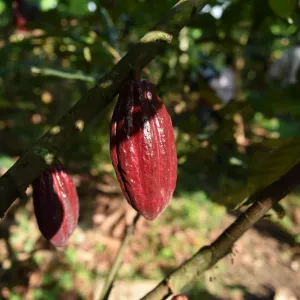Conakry – Guinea: Italy supports sustainable cacao value chains in West Africa
In February 2025, a delegation from the Alliance of Bioversity International and CIAT conducted a mission in Guinea to kick-off the Sustainable Cocoa Value Chain Programme in West Africa. Funded by the Italian Ministry of Foreign Affairs and International Cooperation (MAECI), under the framework of the Piano Mattei per l’Africa, this initiative aims to support local governments in designing

Conakry – Guinea: Italy supports sustainable cacao value chains in West Africa
In February 2025, a delegation from the Alliance of Bioversity International and CIAT conducted a mission in Guinea to kick-off the Sustainable Cocoa Value Chain Programme in West Africa.
Funded by the Italian Ministry of Foreign Affairs and International Cooperation (MAECI), under the framework of the Piano Mattei per l’Africa, this initiative aims to support local governments in designing ambitious investment proposals to secure financial resources for key challenges in cacao production. These include improving farmers’ incomes, expanding agroforestry and strengthening the cacao value chain, all while promoting sustainable development, economic growth and social inclusion.
As Guinea seeks to diversify its economy, cacao is emerging as a strategic crop. Although the country represents only a small share of global cacao exports, the sector holds significant growth potential. However, inefficiencies in value chains, limited access to credit, and the lack of organized farmer support networks remain barriers to expansion.

